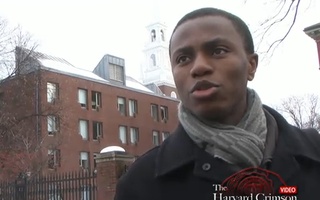“I had always wanted to fly helicopters,” Jack adds. “Plus, combat pilots were one of the few sort of combat-oriented jobs that were open to women.”
At this time, Jack had not yet transitioned and identified as a lesbian woman.
He served in the military until he was discharged in 2007 under the guidelines of the recently repealed “Don’t Ask, Don’t Tell.” He credits his honorable discharge to his good relationship with his captain.
“It was a false choice—serving in the military but hiding your sexuality,” Jack says, his frustration evident. “When you’re in the Army you’re taught core values—two of those are honesty and integrity. You can’t live that and lie about important parts of your life, such as who your partner is.”
As he closeted himself from his unit, Jack says he struggled with lying to his fellow soldiers. His lifelong dream of serving in the military clashed with feelings of guilt that stemmed from lying about his sexual orientation.
“[DADT] forced you to lie to your friends about what you did on the weekend and who you’re going home to visit and who you’re talking to on the phone. You have to lie to your unit, the people you’re close with, the people who you’re supposed to go to war with, the people who are putting their lives in your hands and your life in theirs. It was impossible to adhere to those values and adhere to ‘Don’t Ask, Don’t Tell.’”
If Jack had not transitioned he would eligible to join the military today, but he says he does not regret his decision.
“At the time I transitioned, people were pretty pessimistic about the repeal of DADT,” he says. “But I don’t regret it now. There’s still room for the military to make changes and allow myself and other trans people to serve.”
Because the military prohibits those older than 42 from enlisting, the clock is ticking on Jack’s military career.
“My surgery was a matter of being comfortable in my body. The military just needs to hurry up and make this change—because I’m going to be 30 in a few years!”
After his discharge, Jack enrolled in law school at the University of San Diego but transferred to Harvard Law in 2009 after completing his first year.
Jack began his transition upon transferring to the Law School and has since received hormone treatment and top surgery.
Though Jack, who has medically transitioned but has not been diagnosed with gender identity disorder, says he would love to rejoin the military, the military still excludes him despite the repeal of “Don’t Ask, Don’t Tell” last November.
Jack says that this physical transition has in no way affected his ability to serve.
“Whether I have an Adam’s Apple or not doesn’t affect the way I serve,” Jack says. “I’d be just as good a soldier today as I was a few years ago.”
Read more in News
Harvard To Buy Back $300 Million of BondsRecommended Articles
-
 The Return of ROTC
The Return of ROTC -
 ROTC Faces Uphill Battle
ROTC Faces Uphill Battle -
Activists Say Military's Policy Remains BiasedThe Harvard Trans Task Force (TTF) is circulating an online petition protesting the possible return of the Reserve Officers’ Training Corps before the military allows trans-identified and intersex individuals to openly serve in the military.
-
 Dems Open to ROTC Return
Dems Open to ROTC Return -
ACTA Advocates for ROTC RecognitionThe American Council of Trustees and Alumni has submitted a letter to the Harvard Corporation urging the University to recognize the Reserve Officers’ Training Corps.
-
 Harvard Signs Agreement To Officially Recognize Naval ROTC
Harvard Signs Agreement To Officially Recognize Naval ROTC













